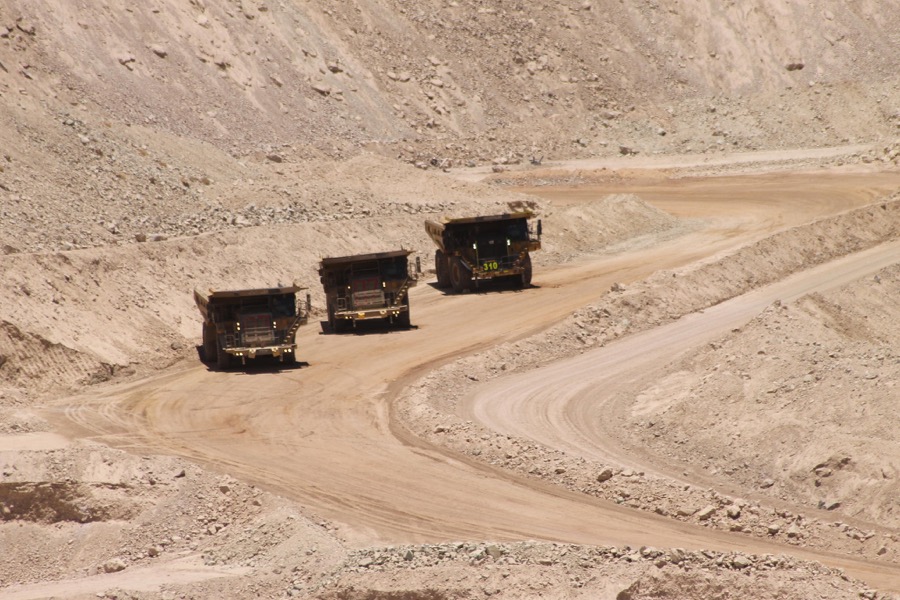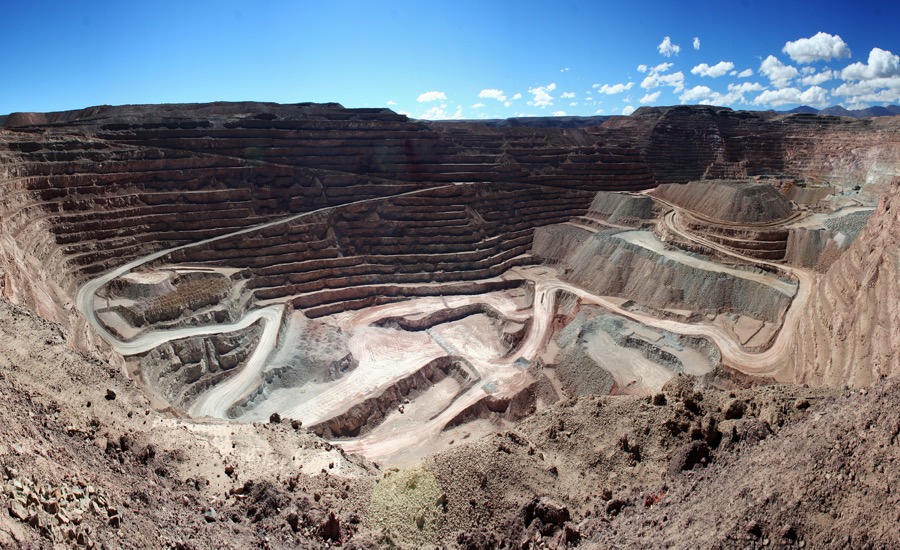Bloomberg News | August 26, 2021 |

Codelco’s Salvador mine. (Image courtesy of Codelco | Flickr)
A growing number of copper workers in top producer Chile are digging in for a bigger share of the metal windfall, increasing the prospect of further supply disruptions.

Just this week, a union at a mine owned by JX Nippon Mining & Metals and plant workers at Codelco’s Andina operation rejected new wage offers, opting instead to continue their strikes. A Cerro Colorado union urged members to snub BHP Group’s final proposal, describing it as “abusive,” and Codelco’s best offer to workers at its Salvador mine was labeled as “unacceptable” by the union.
There’s still time to prevent strikes at Cerro Colorado and Salvador, but the rhetoric suggests it will be a hard task. The four mines represent about 2.2% of global production. While one of the market’s biggest supply threats was neutralized earlier this month with a deal at BHP’s Escondida, talks are only just beginning at Codelco’s top mine, El Teniente.
For now, copper traders are focused on how the Federal Reserve intends to pare stimulus. But physical factors may come back into the spotlight at a time of tight supplies.
To be sure, brinkmanship, eleventh-hour deals and stoppages have characterized previous collective bargaining cycles in Chile, with Escondida hit with a 44-day strike in 2017. Producers can also limit the impact of industrial action by undertaking maintenance work. Codelco, for example, said Tuesday that it can still produce slightly more than last year despite disruptions at Andina.
But the typical tensions of renewing contracts are being inflamed by the current highly profitable copper prices and Chile’s broad-based social justice movement that has plugged into an uptick in resource nationalism globally. Workers are also looking to be rewarded for their sacrifices in keeping mines operating during the pandemic. A bumper bonus package granted to Escondida workers caught the attention of other unions.
At the same time, companies are striving to keep labor costs in check in a cyclical business facing pricier inputs and falling ore quality. In the case of state-owned Codelco, there’s an added responsibility to feed state coffers at a time of increased spending on social services, with the company taking into account each mine’s productivity in wage talks.
(By James Attwood)
Union at BHP’s Cerro Colorado calls on workers to reject contract offer
Reuters | August 25, 2021

Cerro Colorado mine in Chile. (Image by Zwansaurio | Flickr Commons)
The workers’ union at BHP’s Cerro Colorado copper mine in Chile has called on its members to reject a final contract offer by the company, paving the way for a strike at the small deposit, the group’s leadership told Reuters.

The labor tensions come shortly after a court ordered the mine to cease pumping from a reservoir that supplies it with fresh water, citing environmental concerns and slowing progress on a key mine maintenance project.
Union leader Marcelo Franco said BHP had used the regulatory issues it faces as an excuse to lowball workers with an inadequate contract proposal.
“We are calling to vote for a strike,” Franco said.
If the union rejects the contract, Chilean law allows the parties to request government-led mediation for up to 10 days in an effort to reach an agreement and stave off a strike.
BHP did not immediately respond to a request for comment.
The global miner recently struck a deal with workers at its massive Escondida mine that resulted in record-breaking benefits, an outcome that will likely raise the bar at Cerro Colorado and elsewhere in world top copper producer Chile.
Cerro Colorado, a small mine in BHP’s Chilean portfolio, produced about 1.2% of the South American nation’s total copper output in 2020.
(By Fabian Cambero and Dave Sherwood)
Reuters | August 25, 2021

Cerro Colorado mine in Chile. (Image by Zwansaurio | Flickr Commons)
The workers’ union at BHP’s Cerro Colorado copper mine in Chile has called on its members to reject a final contract offer by the company, paving the way for a strike at the small deposit, the group’s leadership told Reuters.

The labor tensions come shortly after a court ordered the mine to cease pumping from a reservoir that supplies it with fresh water, citing environmental concerns and slowing progress on a key mine maintenance project.
Union leader Marcelo Franco said BHP had used the regulatory issues it faces as an excuse to lowball workers with an inadequate contract proposal.
“We are calling to vote for a strike,” Franco said.
If the union rejects the contract, Chilean law allows the parties to request government-led mediation for up to 10 days in an effort to reach an agreement and stave off a strike.
BHP did not immediately respond to a request for comment.
The global miner recently struck a deal with workers at its massive Escondida mine that resulted in record-breaking benefits, an outcome that will likely raise the bar at Cerro Colorado and elsewhere in world top copper producer Chile.
Cerro Colorado, a small mine in BHP’s Chilean portfolio, produced about 1.2% of the South American nation’s total copper output in 2020.
(By Fabian Cambero and Dave Sherwood)
No comments:
Post a Comment